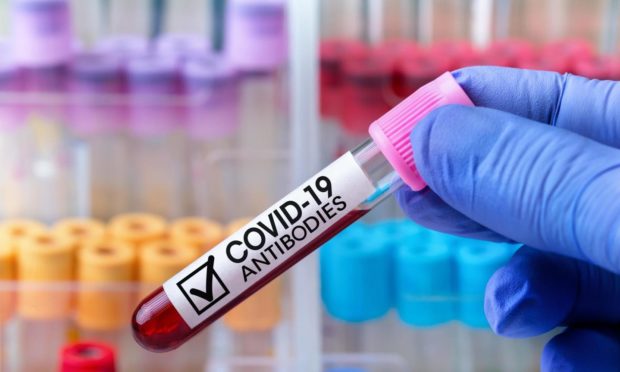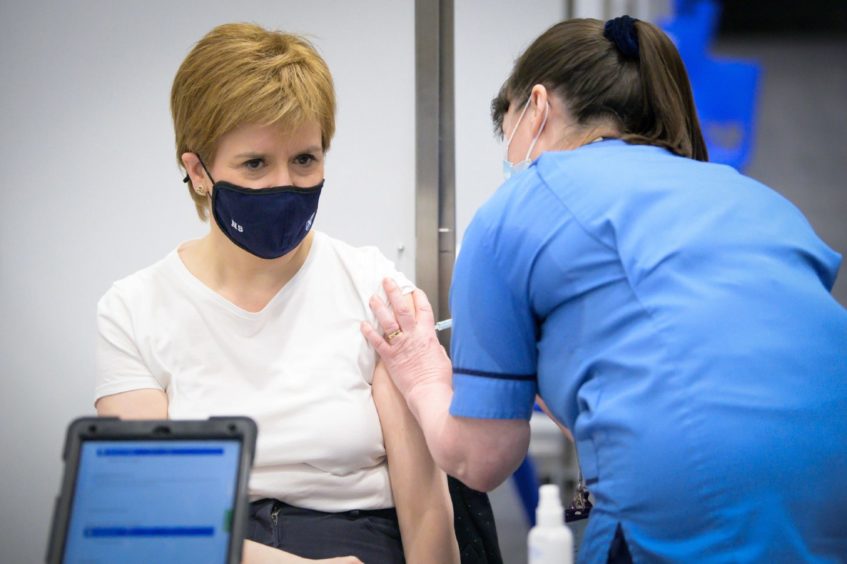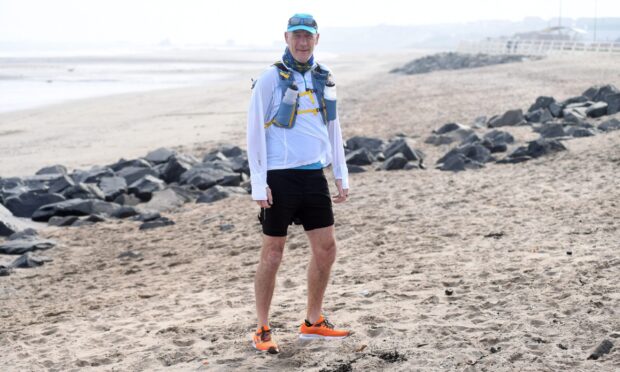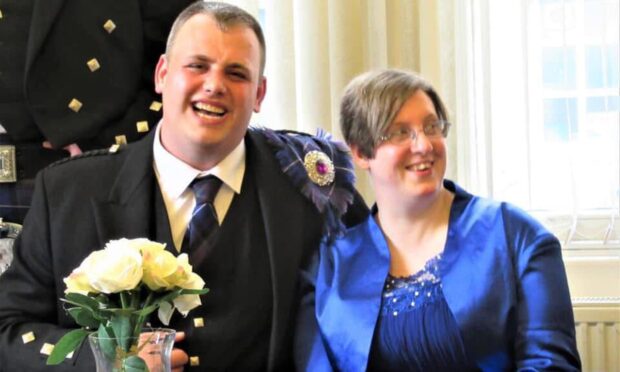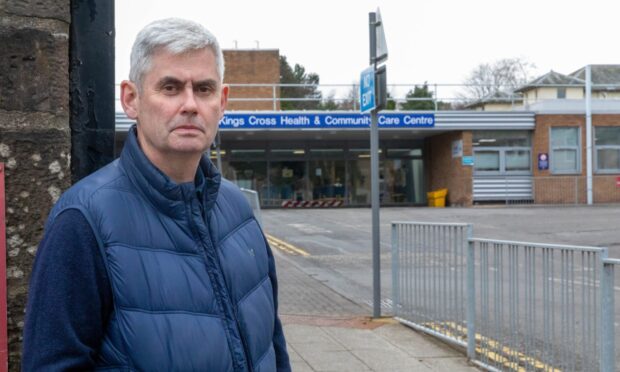More than half of Tayside and Fife is now estimated to have antibodies for Covid-19, surveillance shows.
Blood samples show the rapid vaccination programme taking effect with an upper estimate of 58.6% in Tayside and 60.5% in the Kingdom showing signs of immunity.
The data also shows that across Scotland as many as eight out of 10 over 60s could have antibodies — which come either from past infection or inoculation.
Antibodies indicate population immunity
Health experts believe a third wave is much less likely if antibodies are detected in the vast majority of the population.
It takes between two and three weeks after infection or vaccination for the body to make enough antibodies to fight the infection.
Having antibodies can help to prevent individuals from getting the same infection again.
Once infected or vaccinated, antibodies remain in the blood at low levels and can decline over time. The length of time antibodies remain at detectable levels in the blood is still being researched.
Overall in Scotland, the rate lies between 45.0% and 52.3% meaning Public Health Scotland is “reasonably confident” the true figure is somewhere within that range.
It has shot up from 7.5% at the end of November when nobody in the country had been vaccinated.
It also shows a rapid increase from late February around the time many people began to receive a second dose.
The highest seroprevalence rate (the level of a pathogen in a population) in Scotland is in Shetland and the lowest is in Highlands.
The blood tests were taken from people who attended primary care settings such as a GP and covers all age groups.
Which age group is best protected?
Unsurprisingly, the oldest age groups have greatest protection as the vast majority have now received at least one dose and many are fully vaccinated.
The results are based on blood samples taken since April 20 2020, originally collected for other clinical reasons in community healthcare settings.
They have been obtained from regional biochemistry and immunology laboratories across Scotland.
Just over 38,000 samples have been taken so far with the data correct as at May 3.
Some people can order antibody test kits for free through the UK Government.
Another option is to pay a private company for one, with the cost usually around £50.
Focus: quickly administering second doses
Associate director of Public Health at NHS Tayside, Dr Daniel Chandler has warned against complacency and says the vaccination team are trying to give second doses as quickly as possible.
He said: “NHS Tayside has now delivered almost 430,000 vaccinations to adults across the region, with more than 73% having their first dose and almost 50% completing the course with both doses.
“However, we cannot be complacent.
“The recent increase in cases of COVID-19 in communities across Tayside is concerning and there are still people who have yet to be vaccinated or who have not had both doses of the vaccine so it’s vital we do everything we can to keep everyone safe.
“We are currently inviting those aged 30-39 to have their first vaccination and would urge everyone to take up the offer when it comes and make every effort to attend your scheduled appointment.
“We are also focusing on delivering second doses to as many people as quickly as possible and it is really important that people get both vaccines to ensure they have maximum protection.”
‘We have done so well’
Dr Chandler said vaccination is “our best way out” of the pandemic and urged people to also continue following hygiene and isolation guidance.
He said: “Please isolate immediately and get tested if you have any symptoms.
“Around one in three people with Covid-19 have no symptoms but could potentially be passing the virus to others so, even if you don’t have symptoms, please get tested at one of the testing sites or take up the offer of LFD rapid test kits to use at home.
“Continue to wear face masks, meet outdoors if possible and keep two metres from others where appropriate and wash your hands regularly.
“We have done so well in Tayside but we need everyone to work together and play their part to help us slow down the spread of the virus.”
